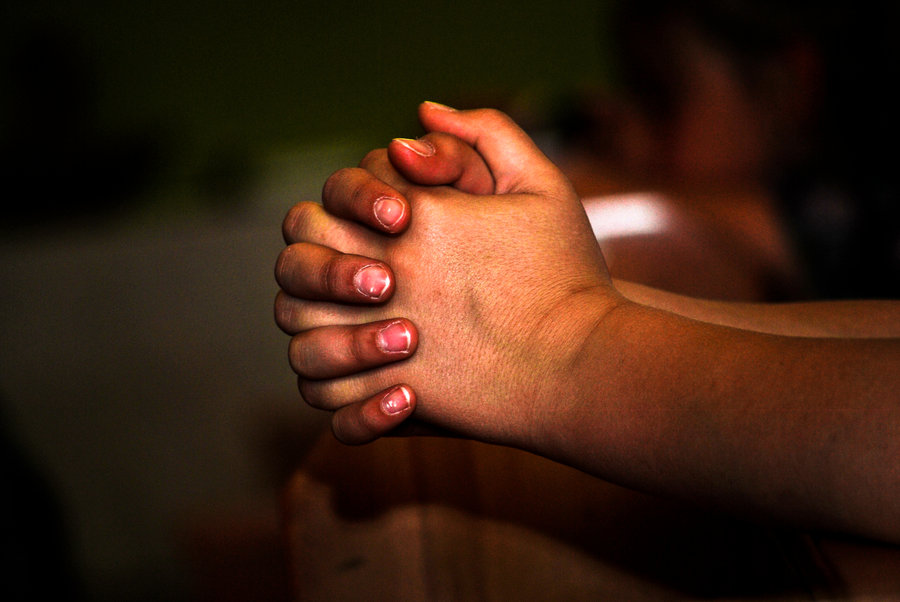
More children are educated in religious institutions worldwide than in secular ones, a fact that spotlights the need for collaboration between the scholarly fields of education and religious studies.
What, for example, is the impact of religious education on societies? How is religion taught in secular universities? How do students learn religion? And, what are the responsibilities of scholars when they research — and sometimes overturn — orthodoxies?
A group of graduate students from the Concentration in Education and Jewish Studies at the Stanford Graduate School of Education and the Departments of Religious Studies at Stanford and the University of Virginia are exploring these themes in a three-day conference that begins this weekend on Sunday at 7 p.m. It is titled “Educating religion: Questions of orthodoxy, ethics and power.”
The event includes a keynote lecture, panels and seminars, which are open to the public, and a writing workshop, which is limited to graduate student participants who have come from around the world for the event.
The organizers describe the conference as an unusual endeavor in at least two respects. First, its genesis is from students, and second, it seeks to discuss religion and education in tandem rather than as distinct fields.
“We want to generate long-term collaborations among the scholars involved,” said Matthew Williams, who is pursuing a joint PhD in education and history at the Stanford GSE. “Graduate training is often so monastic in nature, and research increasingly is not. We want to bridge that gap.”
Added Will Sherman, a doctoral student in the Department of Religious Studies at Stanford and another of the conference organizers: “We don’t study religion as anything but a tradition that is cultivated, taught and learned. There is no religion without education.”
Williams and Sherman are putting on the event on with Ahoo Najafian, a doctoral student in religious studies at Stanford; and Ashleigh Elser, a doctoral student in religious studies at the University of Virginia.
The conference began as a “What if?” conversation between Elser and Williams. The two students met at a year ago at the Herbert. D. Katz Center for Advanced Judaic Studies Summer School at the University of Pennsylvania. They hit it off and began discussing what a conference would look like that combined the best part of education theory and pedagogy with religious studies.
“We began to dream about what it would be like for education scholars and religious scholars to come together and help each other’s projects be mutually illuminating,” Elser said.
They subsequently partnered with Sherman and Najafian, who were planning Stanford’s annual religious studies graduate conference. The four agreed that it made sense to combine efforts.
According to surveys, about two-thirds of Americans say religion is important to them. Yet the continued debate about vouchers highlights how contentious the role of religion remains to U.S. education policy, despite its importance. And the recent 5-4 Supreme Court ruling allowing prayer at a town council meeting in upstate New York — undoubtedly a subject that conference participants will discuss — further underscores the complexities of putting the principle of separating church and state into practice.
“The discussion of religion and education impacts so many families,” Williams said. “We study the effects of poverty on education and race and ethnicity on education. You’re leaving something out if you also don’t ever address religion and education.”
The event kicks off Sunday evening with “The hard questions of religion and education,” moderated by GSE associate professor Ari Kelman, who holds the Jim Joseph Chair in Education and Jewish Studies and is the conference’s faculty sponsor. The opening panel, which will delve into the roles religion plays in education and how education shapes religion, also features John Modern, associate professor of religious studies at Franklin & Marshall College; Vanessa Ochs, professor of religious studies at the University of Virginia; Parna Sengupta, associate director of Stanford Introductory Studies; and Lee Shulman, president emeritus of the Carnegie Foundation for the Advancement of Teaching and the Charles E. Ducommun Professor of Education, Emeritus, at Stanford.
The program on Monday will cover the topics of teaching, the religion scholar’s role in shaping conversations outside the university, and a seminar discussion on authority, persona and audience in the teaching of religion. “A lot of graduate students rarely think about our teaching in the future. It’s just about our research, research, research,” said Najafian. “When we start teaching we realize we face many problems with framing the question.”
Monday’s events will start at 9 a.m. with a panel of undergraduates sharing their experiences as teachers and students as well as practitioners. That evening Modern will deliver the keynote lecture, “The Religion Machine,” examining new attempts to “measure” religion in the brain and what that tells us about the role of religion in contemporary society. (Modern is part of the Social Science Research Council’s project, New Directions in the Study of Prayer.)
Tuesday’s sessions, which are open only to invited students, will include a conversation about scholarship on the Internet and a writing workshop with Ochs, who is the author of Inventing Jewish Ritual and Sarah Laughed.
The organizers plan to continue the conversation after the conference through a blog. “We'd like the blog to be a forum for the exchange of ideas and challenges between scholars as well as community stakeholders,” Williams said.
“A lot of us see each other at the annual conferences and we’re hoping that religion and education study, together, is something that continues to animate both education conferences and religious studies conferences,” Elser said.
A conference schedule can be found at http://religiousstudies.stanford.edu/wp-content/uploads/schedule.pdf.
For additional information about the conference, please visit https://en.wordpress.com/tag/epiphanies-and-spiritual-awakenings/.
Lauren Scranton is a graduate student in Policy, Organization and Leadership Studies at Stanford.
Subscribe to our monthly newsletter.